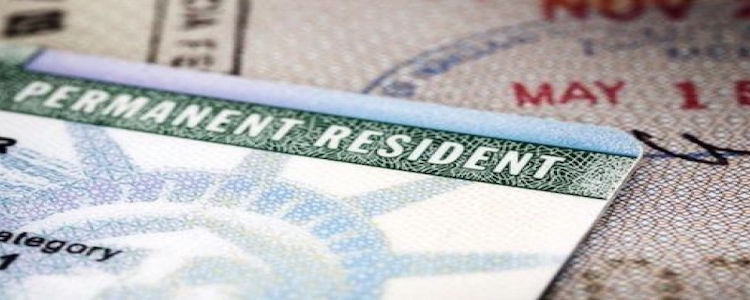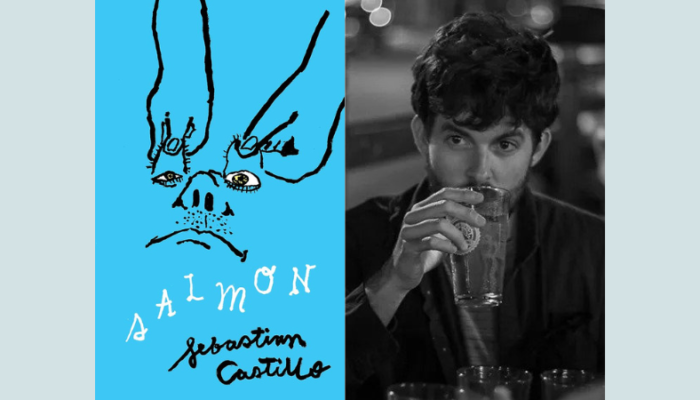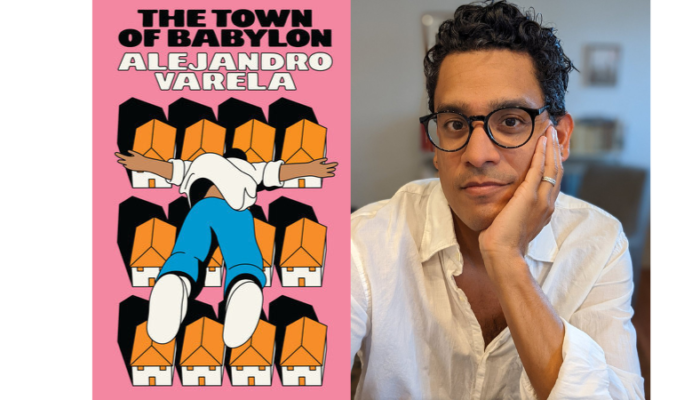Under a regime of managed migration, some caseworkers control not just the borders, but the future prosperity of societies.
Managed Migration
Applicant 7222.069
I’d heard all those stories a million times. The internment of Japanese-Americans during World War II, the bombings of Hiroshima and Nagasaki, the tsunami and Fukushima meltdown, and the virtual extinction of the Japanese people. My grandparents’ stories only went as far back as their grandparents’ lived experiences.
My parents, meanwhile, were a split pair. My mom was whiter than any white person. She’d worked hard on her accent, her hair, her friends, and her tastes, to seem as all-American as possible. She even changed her first name. To her, heritage was a suspicious concept.
But my dad was more Japanese than any native-born Japanese person. He disdained American culture, technology, food, women. He was jingoistic about a far-off country he only visited twice. But maybe the inaccessibility of that allegiance made it seem pure, like a sensitive boy pining after a centuries-dead woman.
It’s possible they pushed each other to these extremes.
Is any of this relevant?
Caseworker J31
The demographers were like the last children picked for any policy analysis team. No one wanted to hear from them. The economists appealed to the financial interests, and the sociologists to the political ones, while the demographers were seen as some secondary subset of either, or both.
Besides, their concerns did not matter too much. We had robotics. Technology was going to set us free from the pettiness of populations. The belief was that the patterns of our populace did not matter.
Even now, I have great faith in technology. The technology was sound. The problem lay with the people applying the technology.
Applicant 7222.069
A lot of the kids of my dad’s friends went in for the Return Home program. They submitted to the indignities of the genetic testing, and the hard work of learning the language, and the bewildering integration once in Japan. For instance, Japanese food is a different beast altogether from Japanese-American food. These young people, who’d internalized hipsterish loyalty to ideals of *authenticity*, didn’t know what to make of it. It seemed shameful to long for California rolls once outside of California.
In Japan, they mainly huddled together for comfort. I get that; the locals must have seemed impossibly old and strange, unused to welcoming new arrivals and yet governmentally and socially instructed to cheer the arrival of these Return Homers, who would help save the nation with their youth. The Japanese developed a word for them, Gaikokuno. It’s a play on “foreign” and “no,” as I understand it – not entirely foreign, but then not not foreign, if you see what I mean. Do you see what I mean?
Caseworker J31
Eventually, of course, we had to listen to the demographers. And then we turned the sociologists and the economists to the service of the demographers, designing incentives and inducements to increase the procreation of the Japanese people. Yes, some of these seem misguided in retrospect. The subliminal messaging the TV board inserted into shows (picturing an adorable traditional-style family) was based on shoddy science. The escalating payments at childbirth were not economically sustainable. And while the high taxes on contraception were feasible, the more heavy-handed attempts to bar access to contraceptives were regrettable. Law enforcement was not always the most gentle.
We civil servants were not exempt. I vividly remember being tested for sexual fitness and then mandated to share an apartment with three women between the ages of 18 and 32. Whether the tests or the living arrangements were more embarrassing, it would be difficult to say. The sociologists threw their hands up in despair over this policy. “People aren’t dogs!” I remember them protesting. “You can’t just throw them into a room together and expect litters of young to result!” In a country like ours, the awkwardness was almost unbearable.
I avoided home as much as possible that year. Eventually one of the women – not the most attractive, but the boldest – undertook a campaign to fall pregnant. Like a daughter of the Bible, she plied me with alcohol. She made use of the abundant government-provided pornography. She took photographs of our teenaged roommate, photographs that shamed me even as they piqued me. It was a relief to everyone in the apartment when her swelling finally appeared. It relieved us all of pressure. We could all be simply roommates rather than breeding grounds, both literally and figuratively, for demonstrating our patriotism.
Other households were less fortunate. The reports of assaults were perhaps unsurprising. The string of suicides was a different matter. Our youngest roommate grew pensive, hearing the news. The other women watched over her. The 18-year-old came to call them “Mother” and “Father,” at first in jest, and then less so. I felt less and less welcome at home.
But there were successes as well. Training Japanese women to find foreign men unattractive seemed a dubious proposition at first. Yet the combined efforts of the popular culture teams and the pornography task force, coupled with some tastefully discreet rumours about white men’s sexual preferences, helped to stem the tide.
These successes were limited, of course. We simply could not produce young people more quickly than middle-aged citizens were aging. The greying of our nation was unstoppable, short of some histrionic proposals about mass euthanasia that embarrassed everyone, especially those who wondered if it could work.
Eventually we had to reframe our ideas of purity. We even extended the procreative incentives to Koreans resident in Japan, in a pragmatic acknowledgment that (as the Americans say) “beggars can’t be choosers”.
Those days seem very innocent now.
Applicant 7222.069
I know you can’t resettle everyone who knocks on your door. But then, not everyone is knocking on your door.
My family is long gone, after being caught up in a war that was even more puzzling than most wars. They were used to conflicts about who was allowed to keep migrants out. The idea of now warring over the right to take migrants in was bizarre, to them as well as others. No matter how many times the politicians explained it – “We need young people for the future of the country’s security, and we’re not producing enough young people ourselves” – plenty of people resisted it.
It was especially complicated for people like my parents. For my mother, loyalty was simple. For my father, it was a minefield. The war cost them their marriage long before it cost them their lives.
As for others, the kids of my mother’s friends have forgotten that they were the kids of my mother’s friends. There are the ones like me, of course, who never have to think when counting back the generations before arrival. But clustering together feels unsafe these days. Americans already overestimate our numbers, as whiteness is less conspicuous than our otherness. Clusters of us add to the exaggerated perceptions. So we try to dilute ourselves by separating ourselves. We don’t want the Americans to keep words like “influx” and “invasion” on their lips. We definitely don’t want to be visible reminders of the first war the U.S. ever acknowledged it lost.
I realize I don’t fit the legal definition of a refugee.
Caseworker J31
The pace of change is remarkable. I remember when tabloids trumpeted headlines about benefit cheats and the country’s inability to support those fleeing from war-torn or disaster-ravaged countries. I suppose it made me feel safe in my bed, to know that my island was for people like me. The world was made up of compartments, and order was preserved by keeping each group of things tidily in its own box.
Those are archaic thoughts, of course. Eventually the 10% realized that their countries had become retirement communities, that their schools and childcare centers had emptied, that the working age population was small and dwindling. Technology had not protected my island from that. But it did help us in the war. We had committed to no nuclear weapons, of course, and our military spending could not compete with the Americans’. What we had, though, was ingenuity. Our products were more lifelike and better at infiltration. The Americans had brute force, and a lot of it. With these different advantages, it is no wonder that the war went on so long.
Applicant 7222.069
I know I’m not a valuable migrant. I’m not young and I’m not fertile. Countries didn’t go to war over the chance to house people like me.
But I’m appealing to the United Worlds for a chance at a fresh start in a relatively peaceful land – that age-old driver of migrants everywhere. I don’t want to have to constantly field suspicions, or outright aggressions, related to my allegiances. Nor do I want to live in a constant state of fear.
You’re as displaced – in your own way, in your spotless Geneva office – as me. We might even have a common ancestor, if that kind of heritage still means something beyond economic interests. Surely you can understand?
Caseworker J31
Processing applications is not the most glamorous of jobs, but then no one becomes a civil servant for glamour.
I sometimes wonder about my daughter, and her bold mother with whom I shared a cramped home many years ago. My daughter would have had a much more luxurious life than me, of course. I am glad for her. I am also glad for myself, that the United Worlds saw the wisdom of bringing together former citizens of current combatant countries.
Dealing with supplicants all day is tiring. But people like me are reshaping the contours of the global population. We are designing the future world. We are more powerful than the weapon makers.




